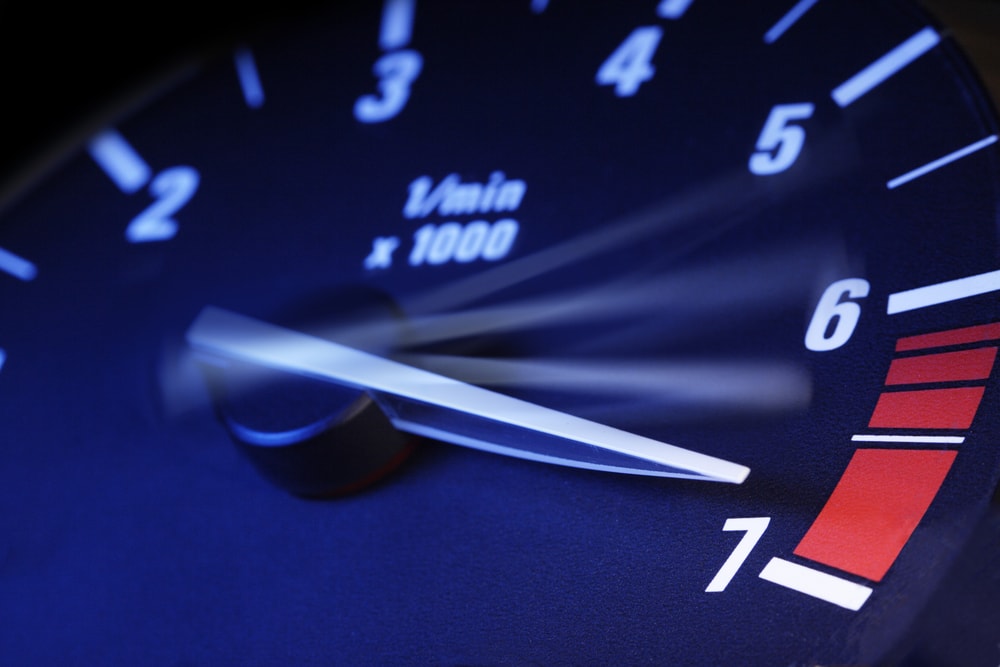Secret Reasons Having a Tachometer Is Necessary for Maintaining Engine Health And Wellness and Effectiveness
This simple yet critical tool plays a pivotal role in the maintenance of an engine's wellness and effectiveness. By providing real-time data on engine speed and RPM levels, a tachometer provides indispensable understandings that directly influence the performance and longevity of the engine. Allow's check out the vital reasons behind its crucial function in keeping engine wellness and performance.
Avoiding Engine Over-Revving

To guard the engine from potential damages, it is crucial to carry out procedures that stop over-revving, a practice that can result in costly repairs and lowered engine lifespan. Over-revving happens when the engine's rotational speed goes beyond the maximum limitation set by the manufacturer, triggering undue stress on interior components such as pistons, shutoffs, and connecting rods. This too much stress can lead to mechanical failures, including bent valves, harmed pistons, and even devastating engine failing.
A rev limiter is a device that controls the maximum RPM (changes per minute) of the engine by either cutting off gas flow or trigger to the engine when the pre-set limitation is reached. Routine maintenance checks to make certain the engine is in optimal condition can additionally aid in stopping over-revving incidents and extending the engine's life-span.
Maximizing Gas Usage
Reliable fuel intake plays an essential duty in making best use of the efficiency and sustainability of an engine. tachometer. Maximizing gas intake not only helps in minimizing operational expenses but additionally lessens the environmental influence of lorry emissions. By using a tachometer to keep an eye on engine rate and readjust driving behaviors appropriately, chauffeurs can attain better gas effectiveness
Keeping a stable rate and avoiding sudden accelerations and slowdowns can dramatically improve fuel economic situation. Additionally, correct gear selection based upon the tachometer analyses makes sure that the engine operates within its ideal variety, bring about a lot more effective gas burning.
Consistently monitoring the tachometer can also assist determine any kind of ineffectiveness or mechanical concerns that might be affecting fuel usage. An abrupt increase in gas usage without a matching modification in driving practices can show a trouble that needs focus.
Monitoring Engine Health
Checking engine health and wellness is crucial for making certain optimum performance and long life of the automobile. By using a tachometer to keep track of engine speed, motorists can find irregularities that may indicate possible issues with the engine. A tachometer provides real-time data on engine transformations per minute (RPM), allowing drivers to recognize any kind of unusual spikes or decrease in RPM that can indicate issues such as misfires, damaged elements, or engine overheating.

Regularly keeping track of engine Read Full Report health with the usage of a tachometer makes it possible for drivers to resolve problems promptly prior to they intensify and trigger significant damage. Spotting a decline in RPM might indicate fuel distribution issues or a blocked air filter, while an abrupt increase in RPM may direct to issues with the transmission or exhaust system. By remaining attentive and receptive to adjustments in engine performance, drivers can stop pricey fixings and make sure the overall wellness and effectiveness of their vehicle.
Increasing Engine Lifespan
Making certain the long life of an engine needs persistent upkeep methods and attentive tracking of vital performance indicators. Prolonging an engine's life-span is crucial for reducing general vehicle maintenance expenses and preventing unforeseen break downs. A tachometer plays a substantial official source function in this aspect by offering real-time data on engine rate, permitting drivers and auto mechanics to make enlightened choices to stop excessive deterioration.

Moreover, regular maintenance based upon tachometer analyses, such as prompt oil modifications and ignition system replacements, can significantly add to prolonging the engine's long life. Overall, integrating a tachometer into routine engine tracking techniques is vital for preserving the engine's health and wellness and efficiency over the long term.
Conserving Money on Services
To properly take care of automobile upkeep prices and reduce unanticipated breakdowns, leveraging the understandings provided by a tachometer can be important in conserving cash on repair services. A tachometer aids in keeping an eye on the engine's RPM (changes per minute), making it possible for motorists to operate within the suggested array. By remaining within these optimum RPM levels, too much pressure on the engine can be stayed clear of, minimizing the chance of pricey repairs as a result of overworking the engine (tachometer). Furthermore, a tachometer can signal motorists to potential problems such as engine misfires or failing original site components, allowing for very early intervention before these problems rise and result in much more comprehensive-- and pricey-- fixings.
In addition, by utilizing the data from a tachometer to exercise smooth acceleration and deceleration, drivers can prolong the life expectancy of their car's components, ultimately saving money on upkeep and substitutes. In general, the insights offered by a tachometer empower drivers to make educated decisions that can avoid unneeded deterioration on the engine, resulting in considerable expense financial savings in the future.
Final Thought
To conclude, a tachometer plays an essential function in preserving engine health and wellness and efficiency by preventing over-revving, enhancing gas usage, keeping track of engine wellness, extending engine life expectancy, and conserving money on repair work. It is an essential device for making certain that the engine operates within risk-free limits and does at its ideal, inevitably adding to the long life and general performance of the automobile.